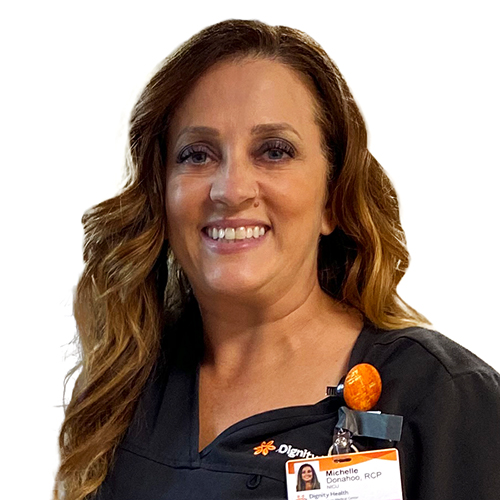 IBCLC Detailed Content Outline: Development and Nutrition Focused CERPs - Section I
IBCLC Detailed Content Outline: Development and Nutrition Focused CERPs - Section I
Access CERPs on Development and Nutrition for the IBCLC Detailed Content Outline recertification requirements. Enjoy convenient on-demand viewing of the latest Development and Nutrition focused IBCLC CERPs at your own pace.

Advancing the Landscape of Neonatal Pain Management

Dr. Marsha Campbell-Yeo, a neonatal nurse practitioner and clinician scientist, is a Full Professor at the School of Nursing, Faculty of Health, Dalhousie University and holds cross appointments in the Department of Pediatrics, and Psychology and Neuroscience. Her Canada Foundation of Innovation funded research lab, MOM-LINC (Mechanisms, Outcome and Mobilization of Maternally-Led Interventions to Improve Newborn Care) is located at the IWK Health Centre. She primarily holds grants examining interventions to improve outcomes of medically at-risk newborns specifically related to pain, stress, and neurodevelopment as well as novel knowledge synthesis and dissemination methods, and digital e-heath interventions aimed at enhancing parental engagement.
She has been recognized for her contributions to the field via numerous awards. She has received an Honorary Doctorate from the Faculty of Medicine and Science from Orebro University, Sweden, and invited as a member of the Royal Society of Canada's College of New Scholars, Artists and Scientists, the recipient of the Inaugural Dalhousie University President's Award for research excellence, was named one of 150 Nurses championing innovation in health for Canada by the Canadian Nurses Association to mark the 150th anniversary of Confederation, a Canadian Institute of Health Research New Investigator Awardee, the Canadian Pain Society 2015 Early Career Awardee, and a Career Development Awardee of the Canadian Child Health Clinician Scientist Program. She is President-Elect of the Pain in Childhood Special Interest Group of the International Association for the Study of Pain, an Executive member of the Council of International Neonatal Nurses, and the Inaugural Chair of the Canadian Premature Babies Foundation Scientific Advisory Committee. Follow her on Twitter @DrMCampbellYeo
Topic: Why Are We Still Hurting Babies: Provider And Parent-led Interventions For The Treatment And Prevention Of Procedural Pain - [View Abstract]
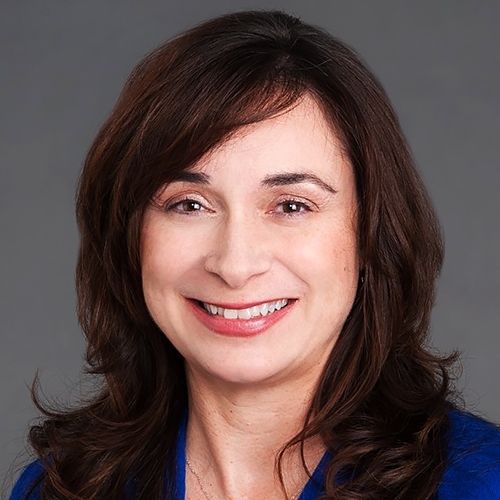

Dr. Tinisha Lambeth is the Neonatal Quality Improvement Coordinator and an Assistant Professor of Pediatrics at Wake Forest School of Medicine. She coordinates quality improvement at Novant Health Forsyth Medical Center NICU as well. She is a Neonatal Nurse Practitioner and received her MSN (2004) & DNP (2014) from Duke University School of Nursing. Over the past 8 years, Tinisha has presented quality improvement work locally, nationally, & internationally. She has co-authored three publications, on the topics of cytomegalovirus, golden hour and the association of different feeding types with necrotizing enterocolitis and growth in premature infants.
Early- and late-onset sepsis is a significant cause of morbidity and mortality in neonates. However, prolonged antibiotic administration alters the microbiome and increases the risk of necrotizing enterocolitis, sepsis, and death in very low birth weight infants and in late preterm and term infants adverse effects include ototoxicity, nephrotoxicity, increased bacterial resistance, and unnecessary costs. Empiric antibiotic therapy for early-onset sepsis and routine Vancomycin usage for late-onset sepsis was a common practice for neonates at this neonatal intensive care unit. Also, antibiotic stewardship in early- and late-onset sepsis management in the NICU posed unique challenges due to variability in provider practices. In this presentation the Model for Improvement quality improvement methodology and three quality improvement projects with a global aim to reduce antibiotic usage will be presented.

View Details / Enroll


Dr. Elizabeth Sharpe is a neonatal nurse practitioner and vascular access specialist with over 25 years of experience in Level II and Level III NICUs. She is an Associate Professor Clinical Nursing at The Ohio State University and Specialty Track Director of the Neonatal Nurse Practitioner Specialty in the Master of Science Graduate Nursing Program. Her unique contributions focus on education, vascular access, simulation, and harm prevention. She is the coauthor of the National Association of Neonatal Nurses (NANN) Guideline for Practice: Neonatal Peripherally Inserted Central Catheters, 3rd Edition, and has authored numerous publications. Dr. Sharpe has served two terms on the Board of Directors of the National Association of Neonatal Nurses (NANN.org) and currently serves as the NANN liaison to the Council of International Neonatal Nurses. She was honored to be named the 1st Janet Pettit Scholar by the Association for Vascular Access (avainfo.org) and a Fellow of the American Association of Nurse Practitioners and the National Academies of Practice.
Our special babies present unique challenges in vascular access. This presentation will highlight different methods of vascular access in neonates and infants including anatomy, therapy and patient characteristics. This will provide baseline information regarding guidelines for proper placement of umbilical catheters, surgically-inserted, peripherally inserted central catheters (PICC), midline and peripheral intravenous catheter. This is essential to building the knowledge base of new nurses and will update advanced neonatal nurses.

View Details / Enroll
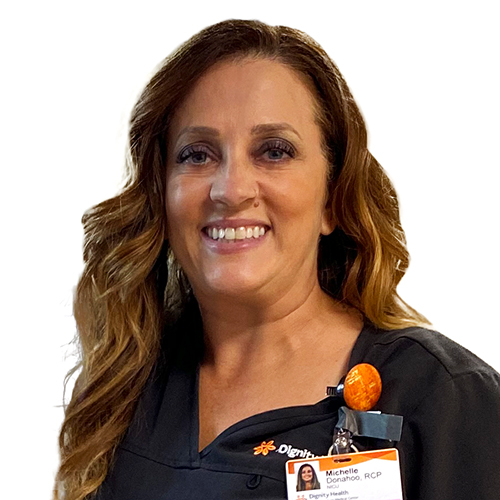

Michelle has been a respiratory therapist for 23 years. Working in the neonatal population for approximately 22 of those years, she was the Neonatal Respiratory Care Specialist for a large organization, where she enjoyed bringing evidenced based practice to the bedside.
Appropriate care of artificial airways is an important part of clinical care in the NICU. This presentation will demonstrate how to provide ongoing care to newborns with an endotracheal tube or a tracheostomy tube. Indications, and contraindications of endotracheal tube management. A variety of securing methods will be reviewed for endotracheal tubes. A review of a variety of chronic conditions that may warrant a tracheostomy tube. The procedure for securing a tracheostomy tube will be reviewed. Cleaning and maintaining a tracheostomy will be discussed. Education with the staff caring for newborns with an artificial airway will be reviewed along with parent education.

Assisted Nursing: Supporting Breastfeeding Infants With Craniofacial Anomalies

Indira has been involved in birth and breastfeeding support for the past 15 years. As a clinician IBCLC, she leads the Specialist Breastfeeding Clinic which is part of the Merton Health Visiting team (Central London Community Healthcare NHS Trust). This Clinic is for complex breastfeeding dyads and by GP/HV/RM referral only. Indira has been awarded the National Institute for Health Research Fellowship (2021-2022) as part of the ARC NWL Improvement Leadership programme. Her project examines how to offer more skilled breastfeeding and lactation care in the NHS nationally. As an Educator and the lead Lecturer of the Breastfeeding London Course, she has been training future IBCLCs for the past 10 years. Indira's roles as Clinician and Educator have led her to the path of research. As the Director of the Centre for Breastfeeding Education and Research, she has published several articles in leading international peer-reviewed breastfeeding and human lactation journals. She has also served La Leche League Great Britain for the past 13 consecutive years.
Craniofacial anomalies (CFA) are a common anatomical malformation that affects the craniofacial region; they present either as cleft lip (CL), cleft palate (CP), or cleft lip and palate (CL/P) with varying degrees of severity. The incidence depends on the population’s ethnicity and geography. Infants with CFA can experience feeding difficulties either at the breast or at the bottle because they can have issues with their suck, swallow, breathe sequence and milk transfer.
This presentation will provide an overview of the anatomy of CFA. Techniques on how best to support families with CFA infants who wish either to breastfeed, maintain lactation or transition towards breastfeeding post-surgery will be discussed. Health care professionals involved in the care sometimes lack the expertise of supporting breastfeeding and often only recommend maternal pumping and specialised bottles. There is limited research about feeding infants with CL/P directly at the breast.
A clinical case will be presented to illustrate clinical techniques and sequence of care.

View Details / Enroll
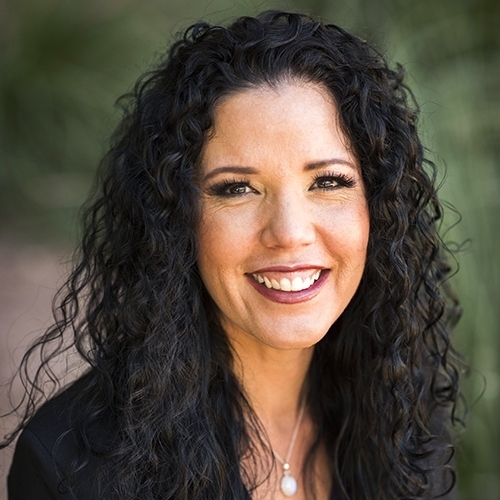
Assisting Late Preterm Dyads Achieve Breastfeeding/Chestfeeding Success

Angela Lober has been an educator and clinician for over 19 years. She has been an Internationally Board Certified Lactation Consultant since 2005 providing evidence-based care within an academic medical center and within her community. Angela is the Director of the Arizona State University Lactation Education Programs offering on-line and academic elective on breastfeeding and lactation. She completed her PhD at Arizona State University's College of Nursing and Healthcare Innovation focused on the breastfeeding complexities of late preterm infants.
Late preterm infants struggle with feeding challenges. Due to the oscillating nature of breastfeeding progress in the late preterm population coupled with the innate issues of prematurity, families need support to navigate waters toward breastfeeding success. A model for evidence-based education and breastfeeding assessment will be presented to support infant development and empower mothers to achieve their breastfeeding goals.

Attachment and Neurodevelopmental Outcomes in Premature Infants: The Role of Interpersonal Neurobiology in the NICU

Kara Wahlin is a licensed marriage and family therapist and art therapist who resides in the Coachella Valley of southern California. After going through the preterm birth of her twin sons William and Elliott, and the subsequent loss of William, Kara made the promise to dedicate her clinical work to helping other families coping with the trauma and loss often wrought by the NICU experience. She developed the website NICU Healing in order to provide free information, couples and individual therapy, and online support to NICU families. Kara uses strengths-based, neuroloscientifically-informed and creative practices to empower her clients to picking up the pieces of their lives and moving forward with their new life stories. She speaks frequently at conferences discussing best clinical practices, and writes for her own as well as other blogs about new ways of coping with mental health issues that come up after traumatic experiences. In her free time, Kara and her son Elliott are art machines and expert hikers, and also spend their time at home with their menagerie of small animals.
Evidence has shown that attachment between a primary caregiver and their preterm infant can change the neurodevelopmental outcomes for the infant later in life. Attachment can be seen as a living organism between parent/caregiver and child, and with encouraged development and growth, the attachment relationship can have profound effects, even in the context of the most difficult of circumstances and medical diagnoses. The more NICU caregivers know how to encourage attachment, the likelier a family system will need less medical/psychological intervention after discharge from the hospital.

Automated Control of Inspired Oxygen…. Is it the Future of Oxygen Therapy in Preterm Infants?

Dr. Souvik Mitra is an Assistant Professor and neonatologist at the Division of Neonatal Perinatal Medicine, Department of Pediatrics, Dalhousie University, Halifax, Canada. He completed his medical school and pediatric residency from Calcutta Medical College, India. Dr Mitra went on to complete his neonatal fellowship at McMaster University, Hamilton, Canada and is currently pursuing his Masters in Clinical Epidemiology from the same institution. Cerebral oxygenation and cardiovascular physiology in premature infants are his primary clinical research interests. He also has extensive epidemiological research experience having published a number of systematic reviews and meta-analyses. He has shared his research through webinars across Canada and the United States as well as through platform presentations at various international conferences. He has special expertise in targeted neonatal echocardiography and is a member of the Pan-American Hemodynamics (TnECHO) Collaborative.
There is increasing evidence that optimizing time spent within targeted oxygen saturation limits improves clinical outcomes in premature infants. Recent randomized clinical trials show that preterm infants who spend more time above the target saturation range tend to have increased retinopathy of prematurity and bronchopulmonary dysplasia, while those infants who spend a considerable time below the target range tend to have more necrotizing enterocolitis and death. Hence it is imperative that we find out the best way to optimize oxygen saturation targeting in preterm infants. Education programs followed by implementation of oxygen titration guidelines for the bedside nursing staff have been shown to have some benefit. However, the ever-increasing NICU workload often makes it impossible for nurses to adhere to strict oxygen titration guidelines. Automated control of inspired oxygen may provide some respite to the nurses as this recent technology has not only been shown to reduce nursing workload but also to improve oxygen saturation targeting in preterm infants. This is an exciting new innovation which, with more refinement in technology and practice, has the potential of becoming the standard of NICU care in future.

View Details / Enroll

Babies Cry to Communicate, Not to Manipulate... Non-Medical Reasons for Crying: An Anthropological Approach

Katrien Nauwelaerts graduated as a prehistoric archaeologist in 2005. She's the mother of three breastfed children and the administrator of the Dutch breastfeeding-website Borstvoeding Aardig, https://borstvoeding.aardig.be. Katrien worked as a volunteer breastfeeding-counsellor, provincial coordinator and training manager for the Belgian breastfeeding organisation Borstvoeding vzw between 2010-2014. Up tot 2018 she was the founder and president of Aardig Leven vzw, a non profit ecological organisation. In 2013 she became an IBCLC. Since 2013 she's working as a lactation consultant at her own private practice Borstvoeding Aardig. She became a nutritionist and a herborist in 2014. Katrien shares her experiences and knowledge on lactation consulting as a public speaker since 2014.
Topic: Breastfeeding and The Use Of Herbs - [View Abstract]
Topic: Young Mothers and Breastfeeding in Belgium - [View Abstract]
There is scientific research that says that breastfeeding duration shortens when parents experience their baby as a baby who cries a lot.
There are all kinds of medical reasons why a baby is crying. Crying is a way of communication for a baby. It's a cry for help.
But what if there are no obvious medical reasons for a baby's crying behavior?
This lecture explains sociological and anthropological factors that can influence crying behavior in babies.
Sometimes parents have false expectations about parenting and baby behavior. Sometimes cultural assumptions make parents believe they have a crying baby when they actually haven't. And some cultural or anthropological parameters can strengthen the crying behaviour in a baby. Learn more about normal newborn crying behaviour and how to help parents understand their newborn.
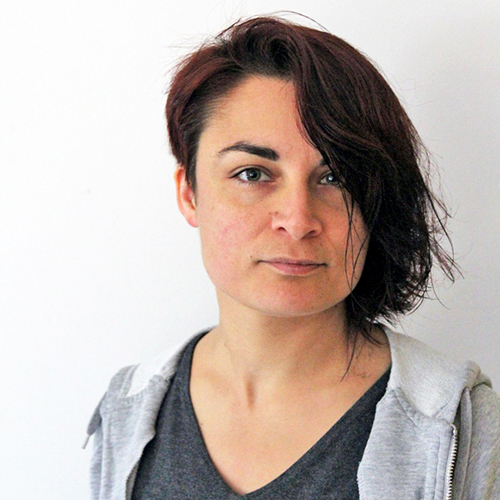
View Details / Enroll
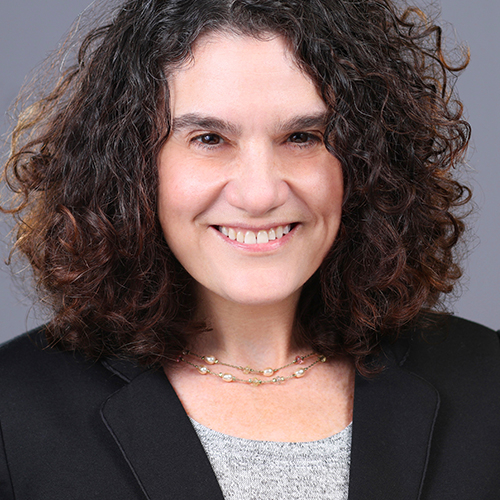
Babies With Suckling Dysfunction: Assessment and Coordination of Care

Leslie has been providing lactation support in Central New Jersey for over 18 years - as a La Leche League (LLL) leader since 2002, an IBCLC at Mercer County WIC from 2014 to 2016, and as a private practice IBCLC since 2011.
Leslie grew up in New York and New Jersey. She graduated from Cook College/Rutgers with a BS in Biochemistry, and from Rutgers University/UMDNJ with a PhD in Biochemistry and Molecular Biology. Leslie's difficulties with early breastfeeding, the help she received from LLL, and challenges with returning to work laid the foundation for her understanding of the importance of skilled and compassionate lactation and infant feeding support.
Topic: Untangling the Big Picture of Tongue-Tie Assessment - [View Abstract]
IBCLCs assess chest/breast and bottle feeding skills and infant’s oral and body anatomy, and the motions that contribute to, or inhibit, the process of feeding as well as post-feeding comfort (digestion and elimination for infant, breast comfort for parent). When infants present with feeding dysfunction, the root of the issue could be from a variety of sources - effects of in utero positioning, prematurity, effects of birth interventions, tight frenulum (ties), asymmetric/tense muscles/fascia, neurological/ reflexive issues, low/high muscular tone, or suckling discoordination, suck-swallow-breathe discoordination, laryngomalacia, compensations for low supply, cleft lip/palate, and more. IBCLCs help families navigate the differential assessment of feeding dysfunction, and at the same time support the family’s feeding and milk supply choices.
This presentation will examine the role of the IBCLC when suckling dysfunction is occurring - for example aiding with latch and bottle feeding, oral/body exercises, referrals for oral evaluations and/or bodywork, or help with frenotomy pre/post work if needed. IBCLCs adjust the care plan as the infant’s feeding skills and parents’ goals grow and change. Developing the skills to aid oral function, and coordinate with specialized practitioners to aid this process, is crucial in order to determine the best course of clinical care, meet the families needs, and allow for the best possible outcome.





